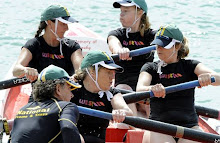Exercise 3.1 The Battle of Wesnoth
I grew up with ATARI computer games and on occasions with friends we would play for hours trying to get to the next level or beat the highest score until mum would shoo us outside. I haven’t played computer games for years but I have been exposed to them recently through the Wii and iPhone that my friends have bought for their children. Generally the adults take over the games especially the trivia and sport games.
I had a brief look at The Battle of Wesnoth and the graphics of the game was impressive but a bit too much for my computer to handle which slowed down my navigation around the site. Sitting for long periods playing a game is not really my thing, I’d rather be outside enjoying the day and interacting with people. I can see how people can get hooked on playing on stop because it can be accessed online at anytime. I worry about some of my tired students in my classroom who comment on staying up playing online games or texting.
Exercise 3.2
5 Mobile gaming and recent statistics
http://www.halflifesource.com/nintendo/article2533.html
http://www.nintendoworldreport.com/newsArt.cfm?artid=17973
http://edugamesblog.wordpress.com/2007/07/11/educational-uses-for-the-nintendo-ds/
http://www.dogs.com.au/articles/420/nintendodsgames.shtml
A school in Japan encouraged the use of Nintendo DS for improved learning of English. Teachers claimed the teaching environment was more relaxed as route learning was reduced. The type of educational software is up to the school but the most popular English tutorial used characters such as Pingu, Doraemon and Pokemon.
The response from teachers using Nintendo DS has been positive. The economical, portable device is seen as a valuable teaching tool because it engages students, has a variety of features such as microphone and stylus ideal for language learning and reducing paper consumption and it can be quickly set up for use. Whereas computer rooms, if available, need to be booked in advance and classes need to be moved to the room.
The educational value of using the Nintendo DS was positive. There was an increase from 18% to 80% of students who mastered Junior high level English vocabulary if they used the Nintendo DS every day. The success of Nintendo DS so far has prompted Japanese schools to trial software for Mathematics and Japanese.
Nintendo DS can be connected through WiFi so students can play against each other on school grounds. In Australia WiFi for Nintendo DS is available at fast food chains where it matches players of similar ability.According to Interactive Australia 2007, an industry report by the Interactive Entertainment Association of Australia, 77% of parents in gaming households play computer games with their children. Sales of educational games averaged 50,000 units per month, in particular Mindscape's new games, which offers a variety of challenges and puzzles, technology and improves their motor and spatial skills.

No comments:
Post a Comment